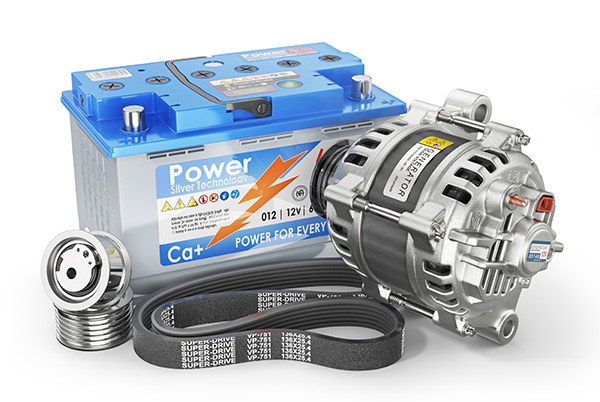
You turn the key or push the start button—and nothing happens. Maybe the lights come on, and the dash lights up, but the engine doesn’t turn over. When this happens, many drivers assume it’s a dead battery. But if your battery appears fine, holds a charge, and still your vehicle won’t start, there may be another issue at play.
Modern vehicles rely on a complex web of systems, and a failure in any of them can lead to a no-start condition. Understanding what might be causing the problem can save you time and help get your car back on the road faster.
The Battery Might Not Be the Real Problem
Just because your battery isn’t the issue doesn’t mean the problem is any less serious. If the battery is charged and the terminals are clean and tight, you’ll need to look elsewhere in the starting and electrical systems.
Many no-start situations come down to issues with power delivery, fuel flow, ignition, or communication between control modules.
Common Causes of a No-Start with a Good Battery
Here are some of the most common reasons a vehicle won't start when the battery is not the issue:
- Bad Starter Motor: The starter engages the engine when you turn the key. If it’s faulty, you may hear a clicking sound or nothing at all when trying to start the car.
- Faulty Ignition Switch: A worn or malfunctioning ignition switch may prevent power from reaching the starter or fuel system, causing the engine to stay silent.
- Fuel System Problems: A clogged fuel filter, bad fuel pump, or fuel delivery issue can prevent the engine from getting the fuel it needs to start.
- Engine Immobilizer Issues: Modern vehicles use anti-theft systems that prevent the engine from starting unless the correct key or fob is present. A malfunction in this system may keep the engine from turning over.
- Neutral Safety Switch Failure: If your car has an automatic transmission, it won’t start unless it’s in park or neutral. A faulty neutral safety switch could prevent the start signal from being sent.
Each of these problems requires a different approach to diagnose and repair, so guessing can waste time and money.
What You Might Hear or See
The sounds (or lack thereof) and dashboard behavior during a failed start attempt can give you clues about what’s wrong:
- A single clicking sound may point to the starter motor or solenoid.
- Multiple clicks could mean a weak connection or failing relay.
- No sound at all might indicate a bad ignition switch or broken wiring.
If the lights dim or go out during the attempt, the issue could be a short or internal battery problem, even if it appears charged.
When to Consider the Alternator
Sometimes, a car won’t start because the alternator failed previously, draining the battery while the engine was running. Even if you charge the battery afterward, it won’t hold a charge long without a functioning alternator. If you recently noticed dimming lights or electrical quirks before the no-start issue, a charging system test may be in order.
Why Diagnostics Matter
Modern vehicles use computers to control virtually every system, and a no-start issue might be stored as a trouble code. Running a diagnostic scan can reveal if a sensor, control module, or other electronic component is preventing your car from starting.
Trying to fix the issue by replacing random parts can get expensive quickly. A professional inspection helps identify the real cause.
Get Expert Diagnostics at 5 Star Auto Service in Belmont, CA
If your vehicle won’t start and you’re sure the battery is good, let our experienced technicians take a closer look. We’ll test your starting and charging systems, run diagnostics, and pinpoint the issue so you’re not stuck guessing.
Call 5 Star Auto Service in Belmont, CA, to schedule no-start diagnostics and get back on the road with confidence.